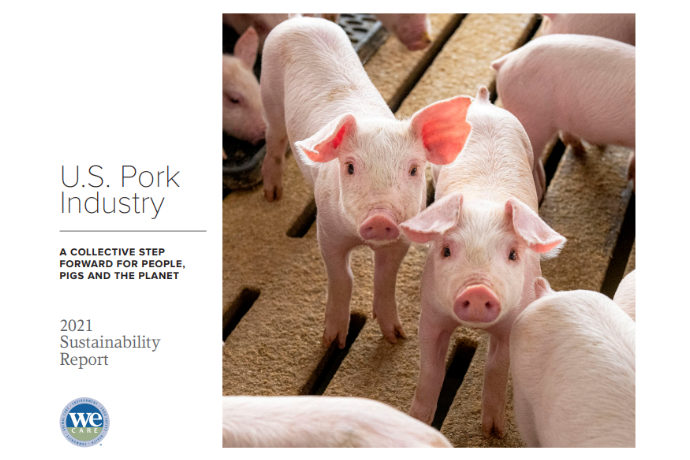DES MOINES, IOWA — The National Pork Board (NPB) outlined goals and metrics from its US Pork Industry Sustainability Report.
The new information was developed by producers and funded by Pork Checkoff dollars in collaboration with the National Pork Producers Council.
“The producers involved in this effort wanted the industry’s goals to align with sustainability efforts globally while also making sure the approaches to accomplish them were as diverse as the 60,000-plus farms in our industry,” said Sara Crawford, PhD, vice president of sustainability for NPB. “As a result, these goals are truly measurable and also meaningful on a global and local scale.”
A vital aspect to sustainability metrics infrastructure is On-Farm Sustainability reports. That information provides free, farm-level data to help pork producers establish an individual baseline for social, environmental, and economic sustainability. NPB added that it wants to double the number of farms participating in the report in the next 12 months.
“We need benchmarks to better track and monitor progress, and also to make better data-driven decisions for the future of pork production,” said Dale Stevermer, Minnesota pig farmer and participant in the goals and metrics development. “The On-Farm Sustainability Reports provide metrics that can be aggregated to track progress at the industry level, while also giving farmers individualized data that helps them make better decisions for the future of pork production.”
The report also outlines its producer-driven metrics approach, which quantifies progress through real, farm-level data. Each goal has specific reporting metrics and mechanisms in place to help individual farms.
Objectives were developed through a multi-year process, considering customer needs and expectations. NPB said it closely aligned with 15 of the 17 United Nations Sustainable Development Goals.
The report reiterated the WeCare Ethical principles adopted by the NPB in 2007. The core components include animal well-being, environmental stewardship, people and employees, communities, public health and food safety.
“These goals and this report are new, but the commitment to working toward new and better solutions is continual,” Crawford added. “On-Farm Sustainability Reports and access to more data positions the industry better than ever to meet current food production needs while protecting future generations’ abilities to do the same.”
More information about the industry sustainability report can be found here.


